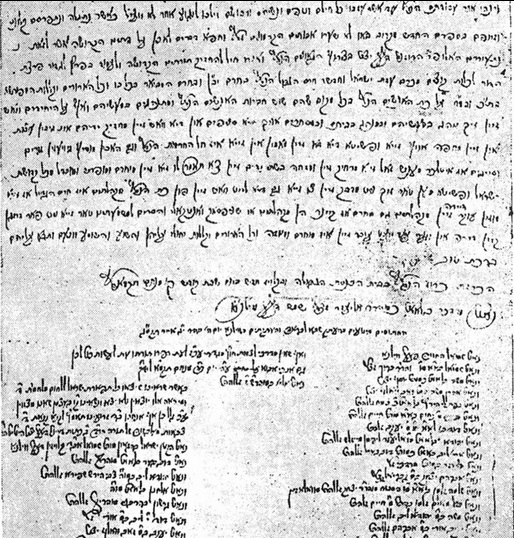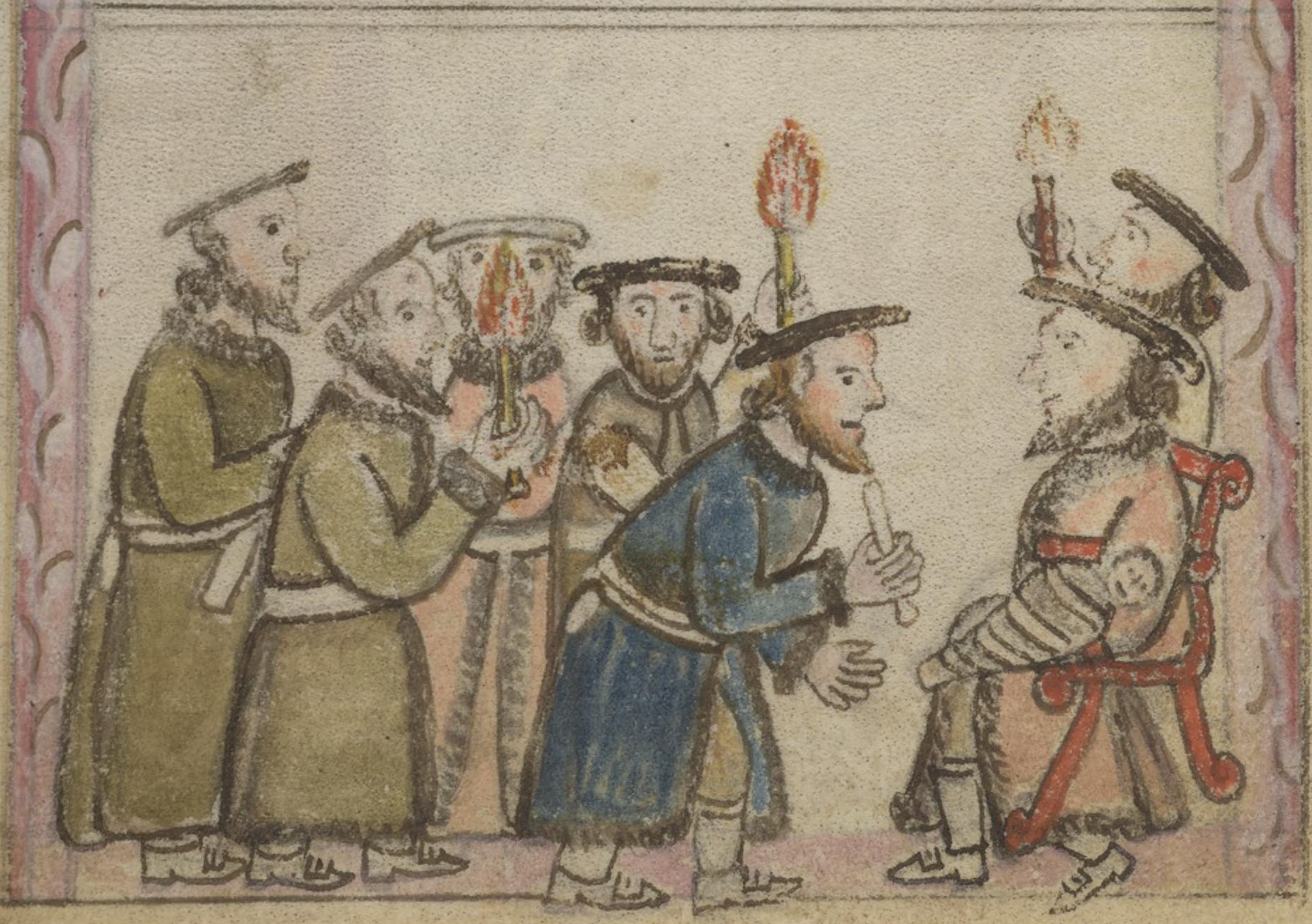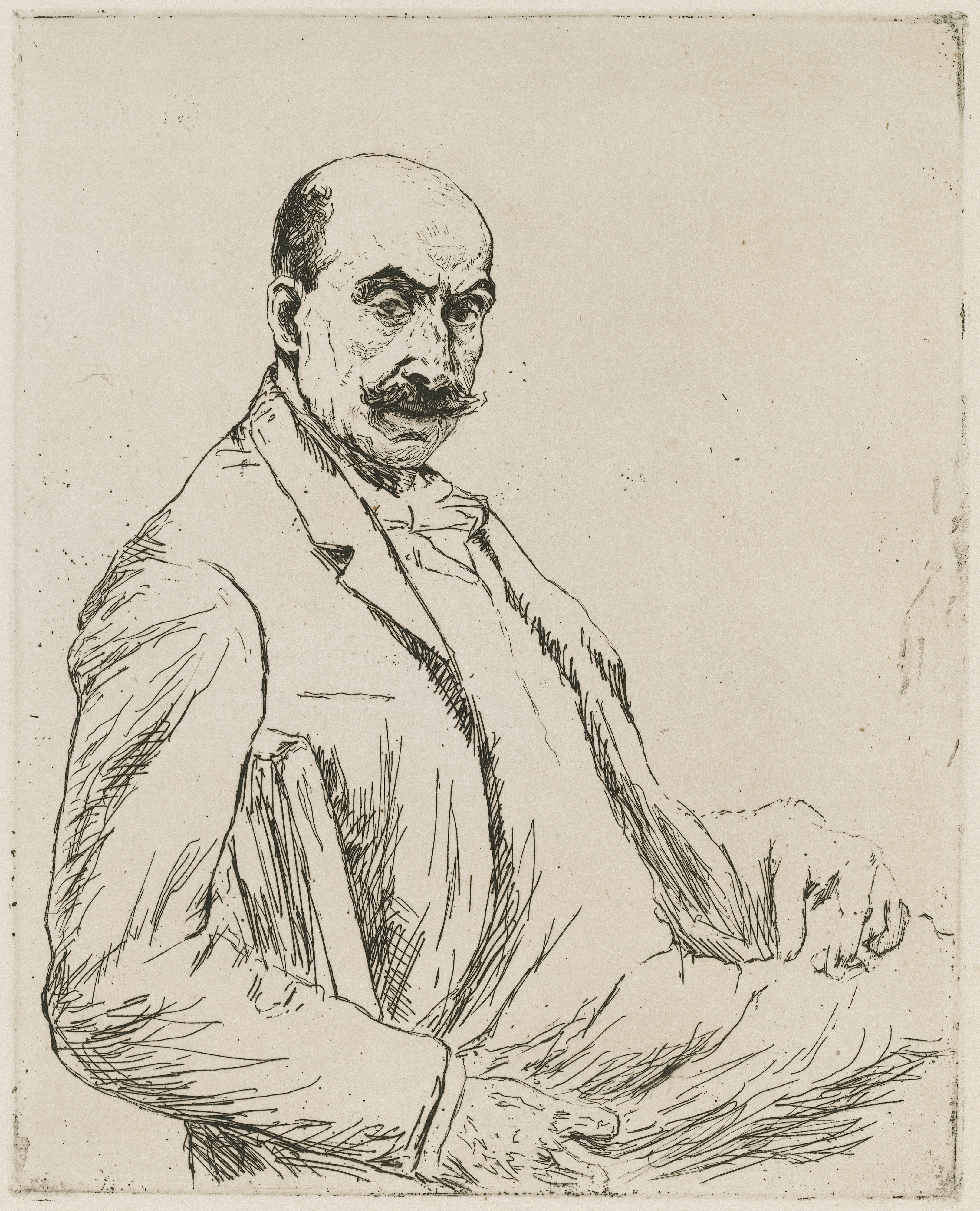|
Nicolaus Ferdinand Haller
Nicolaus Ferdinand Haller (21 January 1805 in Hamburg – 10 October 1876 in Hamburg) was a jurist, senator and First Mayor of Hamburg and head of state from 1863 to 1864; 1866 to 1867; 1870 to 1873. Family The Haller family was one of the 50 Jewish families expelled from Vienna whom the Great Elector Frederick William of Brandenburg (reign 1640–1688) granted asylum in his realm. The family first settled in Frederick William's Duchy of Magdeburg in the city of Halle upon Saale, whence it adopted its surname. Ferdinand Haller's grandfather Joseph Benjamin Haller died in Halle in 1772. Ferdinand Haller's father later moved to Hamburg. Ferdinand Haller's parents were Blümchen Gottschalk from Hanover and Mendel Joseph Haller (1770–1852), who was technically a Schutzjude under the more liberal Danish rule in Holsteinian Altona, allowing them to practically work and live in adjacent, but more restrictive Hamburg. In 1794 Mendel Joseph Haller founded a banking and trading com ... [...More Info...] [...Related Items...] OR: [Wikipedia] [Google] [Baidu] |
First Mayor Of Hamburg
The following is a chronological list of mayors of Hamburg, a city-state in Germany. The mayors are the head of the city-state, part of the government of Hamburg. Since 1861, according to the constitution of 28 September 1860, the state has been governed by the ten-member Senate, which had previously been called the ''council'' (in the German language of that time: ''Rath''). It is headed by the First Mayor of Hamburg (German title: ''Erster Bürgermeister der Freien und Hansestadt Hamburg'') as the President of the Senate. The deputy is the Second Mayor. For much of its history, Hamburg was a free imperial city and later a sovereign state; the position of First Mayor historically was equivalent to that of a sovereign head of state. In the 1871–1918 German Empire, the Hamburg First Mayor was equivalent to the federal princes of the 23 German monarchies (4 of whom held the title of King and the others holding titles such as Grand Duke, Duke or Sovereign Prince). Since 1918, the ... [...More Info...] [...Related Items...] OR: [Wikipedia] [Google] [Baidu] |
Schutzjude
''Schutzjude'' (, "protected Jew") was a status for German Jews granted by the imperial, princely or royal courts. Within the Holy Roman Empire, except some eastern territories gained by the Empire in the 11th and 12th centuries (e.g. Brandenburg), Jews usually had the status of Servi camerae regis. This status included imperial protection and the levying of special taxes on the Jews for the Empire's treasury (Latin: camera regis). But the emperors, always short of money, alienated – by sale or pledge – their privilege to levy extra taxes on Jews, not all at once, but territory by territory to different creditors and purchasers. Thus Jews lost their – not always reliable – imperial protection. Many territories that gained supremacy over the Jews living within their boundaries subsequently expelled them. After the general expulsions of the Jews from a given territory often only single Jews – if any at all – would be granted the personal privilege to reside within t ... [...More Info...] [...Related Items...] OR: [Wikipedia] [Google] [Baidu] |
Pastor
A pastor (abbreviated as "Pr" or "Ptr" , or "Ps" ) is the leader of a Christian congregation who also gives advice and counsel to people from the community or congregation. In Lutheranism, Catholicism, Eastern Orthodoxy, Oriental Orthodoxy and Anglicanism, pastors are always ordained. In Methodism, pastors may be either licensed or ordained. Pastors are to act like shepherds by caring for the flock, and this care includes teaching. The New Testament typically uses the words "bishops" ( Acts 20:28) and " presbyter" ( 1 Peter 5:1) to indicate the ordained leadership in early Christianity. Likewise, Peter instructs these particular servants to "act like shepherds" as they "oversee" the flock of God ( 1 Peter 5:2). The words "bishop" and "presbyter" were sometimes used in an interchangeable way, such as in Titus 1:5-6. However, there is ongoing dispute between branches of Christianity over whether there are two ordained classes (presbyters and deacons) or three (bishops, priests ... [...More Info...] [...Related Items...] OR: [Wikipedia] [Google] [Baidu] |
Allermöhe
Allermöhe () is a quarter in the borough Bergedorf of the Free and Hanseatic city of Hamburg in northern Germany. The quarter consists of a rural area and the old settlement Allermöhe. In 2020 the population was 1,392 (without the new neighbourhood Neuallermöhe, which is a separate quarter). History In 1410 the State of Hamburg settled the ''Landherrenschaft Bill- und Ochsenwerder''. The settlement Allermöhe belonged to this rural village. In 1997 the planning for a completely new neighbourhood began. From 1982 to 1994 more than 3,800 flats were constructed, creating the neighbourhood Neuallermöhe (New Allermöhe). Geography In 2006 according to the statistical office of Hamburg and Schleswig-Holstein, the quarter Allermöhe has a total area of . Politics These are the results of Allermöhe in the Hamburg state election: Demographics In 2006 in the quarter Allermöhe were living 15,143 people. The population density was . 27.9% were children under the age of 18, and 6.7 ... [...More Info...] [...Related Items...] OR: [Wikipedia] [Google] [Baidu] |
Herem (censure)
''Herem'' (, also Romanized ''chērem, ḥērem'') is the highest ecclesiastical censure in the Jewish community. It is the total exclusion of a person from the Jewish community. It is a form of shunning and is similar to ''vitandus'' "excommunication" in the Catholic Church. Cognate terms in other Semitic languages include the Arabic terms ''ḥarām'' "forbidden, taboo, off-limits, or immoral" and haram "set apart, sanctuary", and the Ge'ez word ''ʿirm'' "accursed". Arguably the most famous case of a herem is that of Baruch Spinoza, the seventeenth-century philosopher. Another renowned case is the herem the Vilna Gaon ruled against the early Hassidic groups in 1777 and then again in 1781, under the charge of believing in panentheism. Other famous subjects of a herem were early Russian communists Leon Trotsky and Grigory Zinoviev. Sometime in 1918, while Ukraine was under German occupation, the rabbis of Odessa pronounced herem against Trotsky, Zinoviev, and other Jewish Bols ... [...More Info...] [...Related Items...] OR: [Wikipedia] [Google] [Baidu] |
Brit Mila
The ''brit milah'' ( he, בְּרִית מִילָה ''bərīṯ mīlā'', ; Ashkenazi pronunciation: , "covenant of circumcision"; Yiddish pronunciation: ''bris'' ) is the ceremony of circumcision in Judaism. According to the Book of Genesis, God commanded the biblical patriarch Abraham to be circumcised, an act to be followed by his male descendants on the eighth day of life, symbolizing the covenant between God and the Jewish people. Today, it is generally performed by a mohel on the eighth day after the infant's birth and is followed by a celebratory meal known as ''seudat mitzvah''. ''Brit Milah'' is considered among the most important and central commandments in Judaism, and the rite has played a central role in the formation and history of Jewish civilization. The Talmud, when discussing the importance of ''Brit Milah'', compares it to being equal to all other mitzvot (commandments) based on the gematria for ''brit'' of 612. Jews who voluntarily fail to undergo '' ... [...More Info...] [...Related Items...] OR: [Wikipedia] [Google] [Baidu] |
Beit Din
A beit din ( he, בית דין, Bet Din, house of judgment, , Ashkenazic: ''beis din'', plural: batei din) is a rabbinical court of Judaism. In ancient times, it was the building block of the legal system in the Biblical Land of Israel. Today, it is invested with legal powers in a number of religious matters (''din Torah'', "matter of litigation", plural ''dinei Torah'') both in Israel and in Jewish communities in the Diaspora, where its judgments hold varying degrees of authority (depending upon the jurisdiction and subject matter) in matters specifically related to Jewish religious life. History Rabbinical commentators point out that the first suggestion in the Torah that the ruler divest his legal powers and delegate his power of judgment to lower courts was made by Jethro to Moses (Exodus ). This situation was formalised later when God gave the explicit command to "establish judges and officers in your gates" (Deuteronomy ). There were three types of courts (Mishnah, tract ... [...More Info...] [...Related Items...] OR: [Wikipedia] [Google] [Baidu] |
Gustav Pauli
Theodor Gustav Pauli (usually Gustav Pauli) (2 February 1866, Bremen – 8 July 1938, Munich) was a German art historian and museum director in Bremen and Hamburg. Early life and career Gustav Pauli was the son of Bremen city senator and mayor, Alfred Pauli (1827–1915). He studied art history in Strasbourg, and then in Leipzig under Anton Heinrich Springer. Pauli wrote his thesis on the Renaissance in Bremen and graduated in Leipzig in 1889. He worked as a research assistant in the Kupferstichkabinett, Dresden alongside Max Lehrs from 1889 until 1891. When Springer died in 1891, Pauli applied to study under Jacob Burckhardt in Basel. Burckhardt, upon discovering that Pauli had spent time with the prickly Springer, declared that Springer's former students were "unteachable", but accepted him anyway. Bremen In the summer of 1899, Pauli was appointed to the Kunsthalle Bremen. He engaged the gallery with modern German art, including the first monographic (and sadly, pos ... [...More Info...] [...Related Items...] OR: [Wikipedia] [Google] [Baidu] |
Max Liebermann
Max Liebermann (20 July 1847 – 8 February 1935) was a German painter and printmaker, and one of the leading proponents of Impressionism in Germany and continental Europe. In addition to his activity as an artist, he also assembled an important collection of French Impressionist works. The son of a Jewish banker, Liebermann studied art in Weimar, Paris, and the Netherlands. After living and working for some time in Munich, he returned to Berlin in 1884, where he remained for the rest of his life. He later chose scenes of the bourgeoisie, as well as aspects of his garden near Lake Wannsee, as motifs for his paintings. Noted for his portraits, he did more than 200 commissioned ones over the years, including of Albert Einstein and Paul von Hindenburg. Liebermann was honored on his 50th birthday with a solo exhibition at the Prussian Academy of Arts in Berlin, and the following year he was elected to the academy. From 1899 to 1911 he led the premier avant-garde formation in Germa ... [...More Info...] [...Related Items...] OR: [Wikipedia] [Google] [Baidu] |
Alexander I Of Russia
Alexander I (; – ) was Emperor of Russia from 1801, the first King of Congress Poland from 1815, and the Grand Duke of Finland from 1809 to his death. He was the eldest son of Emperor Paul I and Sophie Dorothea of Württemberg. The son of Grand Duke Paul Petrovich, later Paul I, Alexander succeeded to the throne after his father was murdered. He ruled Russia during the chaotic period of the Napoleonic Wars. As prince and during the early years of his reign, Alexander often used liberal rhetoric, but continued Russia's absolutist policies in practice. In the first years of his reign, he initiated some minor social reforms and (in 1803–04) major liberal educational reforms, such as building more universities. Alexander appointed Mikhail Speransky, the son of a village priest, as one of his closest advisors. The Collegia were abolished and replaced by the State Council, which was created to improve legislation. Plans were also made to set up a parliament and sign a con ... [...More Info...] [...Related Items...] OR: [Wikipedia] [Google] [Baidu] |
Ludwig Von Stieglitz
Ludwig von Stieglitz (surname), Stieglitz (Любим Иванович Штиглиц; December 24, 1779 in Arolsen, Waldeck (state), Waldeck, Holy Roman Empire of the German Nation; , Saint Petersburg) was a German Jewish businessman in Russia and founder of the bank, banking house Stieglitz & Company. He was the youngest of three sons of the Waldeck (state), Waldeck court banker Hirsch Bernhard Stieglitz and his wife Edel Elisabeth (née Marcus). As a young man Stieglitz moved to Russia as a representative of his merchant house, and eventually, after converting to Christianity, was appointed court banker to Alexander I of Russia, gaining influence and receiving various Russian decorations. After adopting Christianity, he was raised to the dignity of a Russian hereditary baron on August 22, 1826. Stieglitz continued as court banker to Nicholas I of Russia, Nicholas I and took an active part in many financial affairs of his adopted country, investing in a range of enterprises ... [...More Info...] [...Related Items...] OR: [Wikipedia] [Google] [Baidu] |

.jpg)





